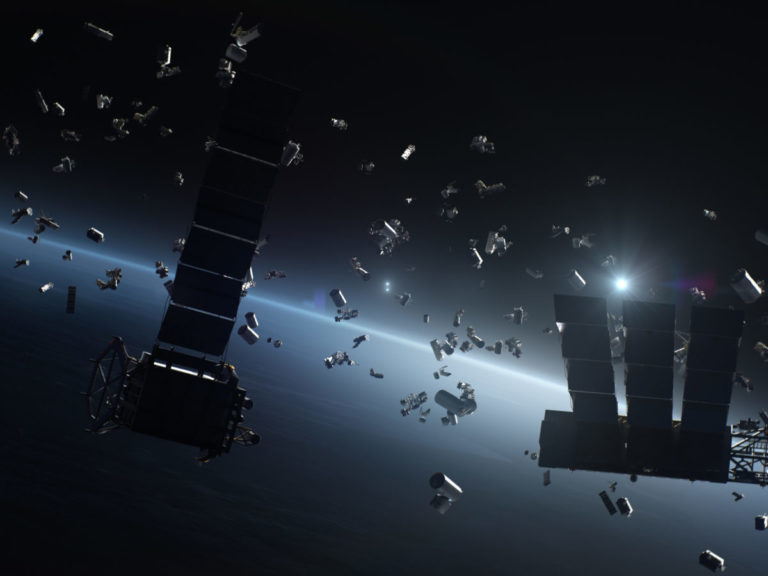Latest News

Space debris representation. Photo: Astroscale
The European Space Agency (ESA) awarded Astroscale’s U.K. and European subsidiary an 800,000 euro ($879,000) contract to lead a collision avoidance study. The study is part of the Collision Risk Estimation and Automated Mitigation (CREAM) activities in ESA’s Space Safety Program.
CREAM is designed to generate technologies for automated systems that can determine the likelihood of orbital collisions with greater accuracy. This would reduce the number of false alerts by allowing reduced time between maneuver decisions and close approaches. It would also optimize maneuver plans that are uploaded to satellites.
As part of the study, Astroscale Ltd. will focus on developing concepts that use inter-satellite links, large ground station networks as a service, and on-board processing to reduce the timeframe from alert to likely collision. The study will recommend late commanding paths to allow for late decisions in collision avoidance, which Astroscale said can save time and resources from unnecessary maneuvers.
Astroscale is working with GMV teams in the U.K., Portugal, and Romania for their expertise with on-ground and on-board collision avoidance processes. OneWeb will also share its expertise on managing collision avoidance for large satellite constellations. The analysis will conclude by mid-2023 with recommendations on the most viable solutions to allow for collision avoidance late commanding.
“The CREAM 2 study will enable Astroscale and partners GMV and OneWeb to start developing techniques and prototyping software for making decisions on collision avoidance. We want all spacecraft to be safe and to reduce the growing costs of collision avoidance for all operators,” said Dr. Jason Forshaw, head of Future Business for Europe at Astroscale.
Get the latest Via Satellite news!
Subscribe Now